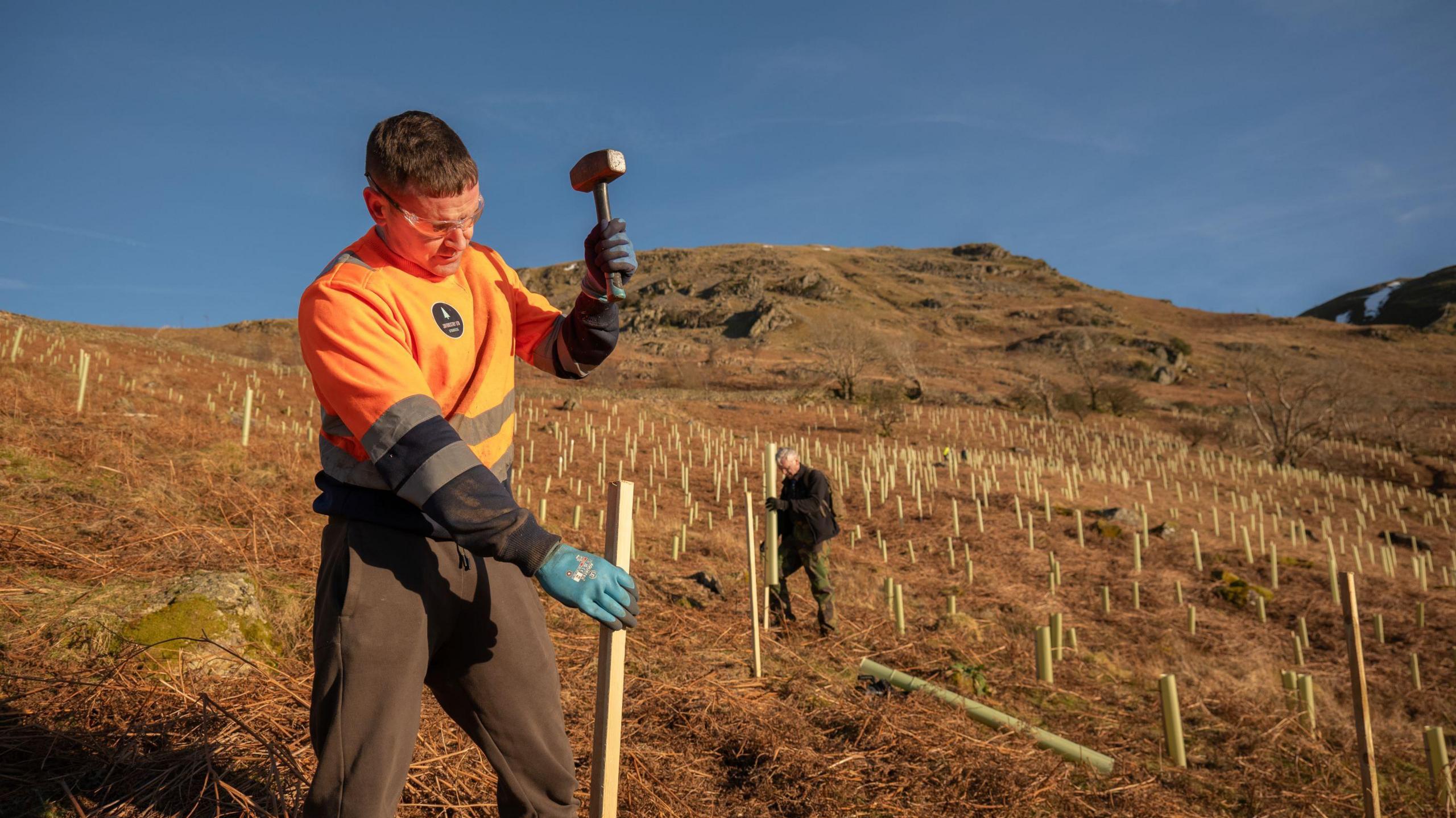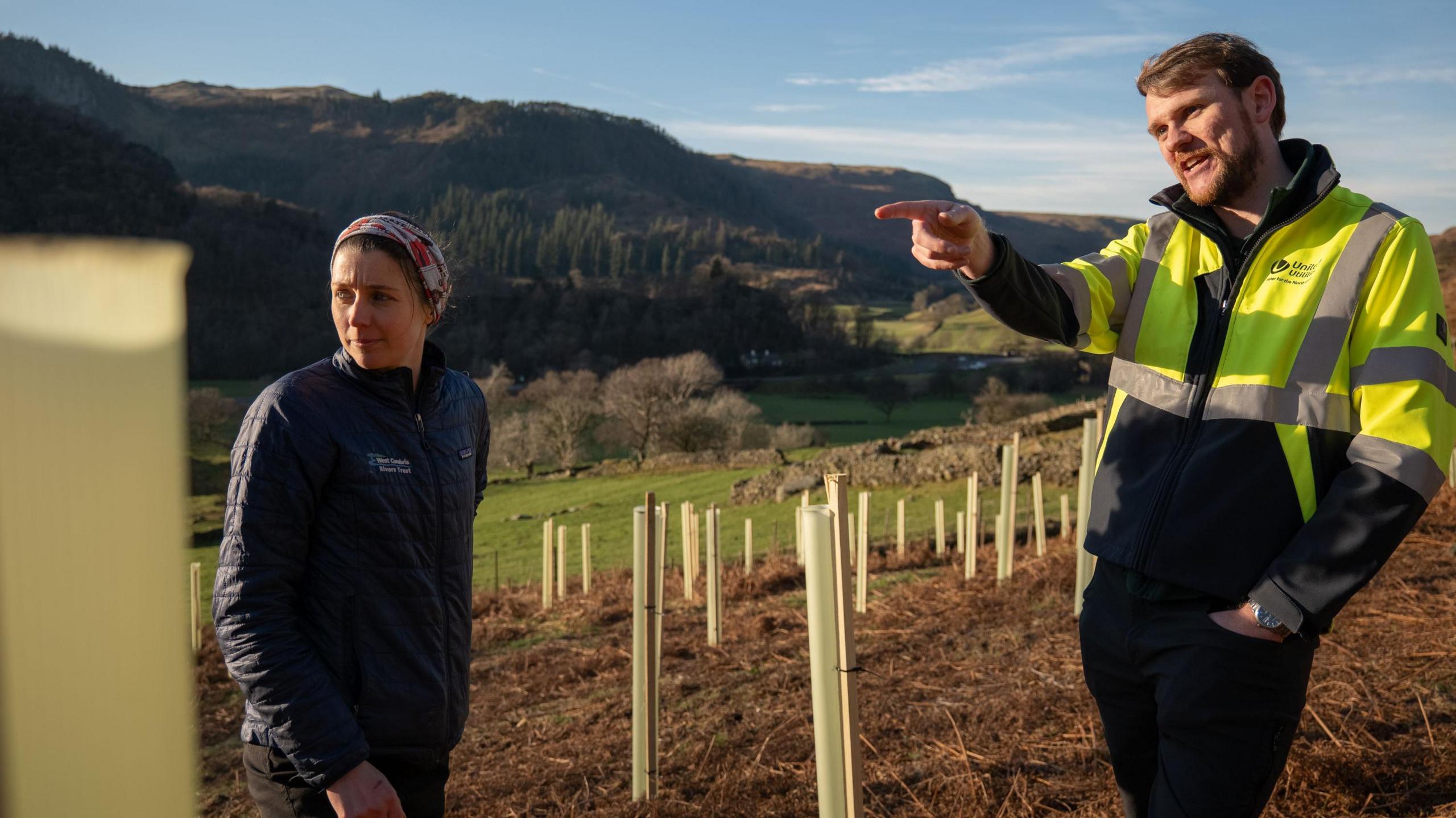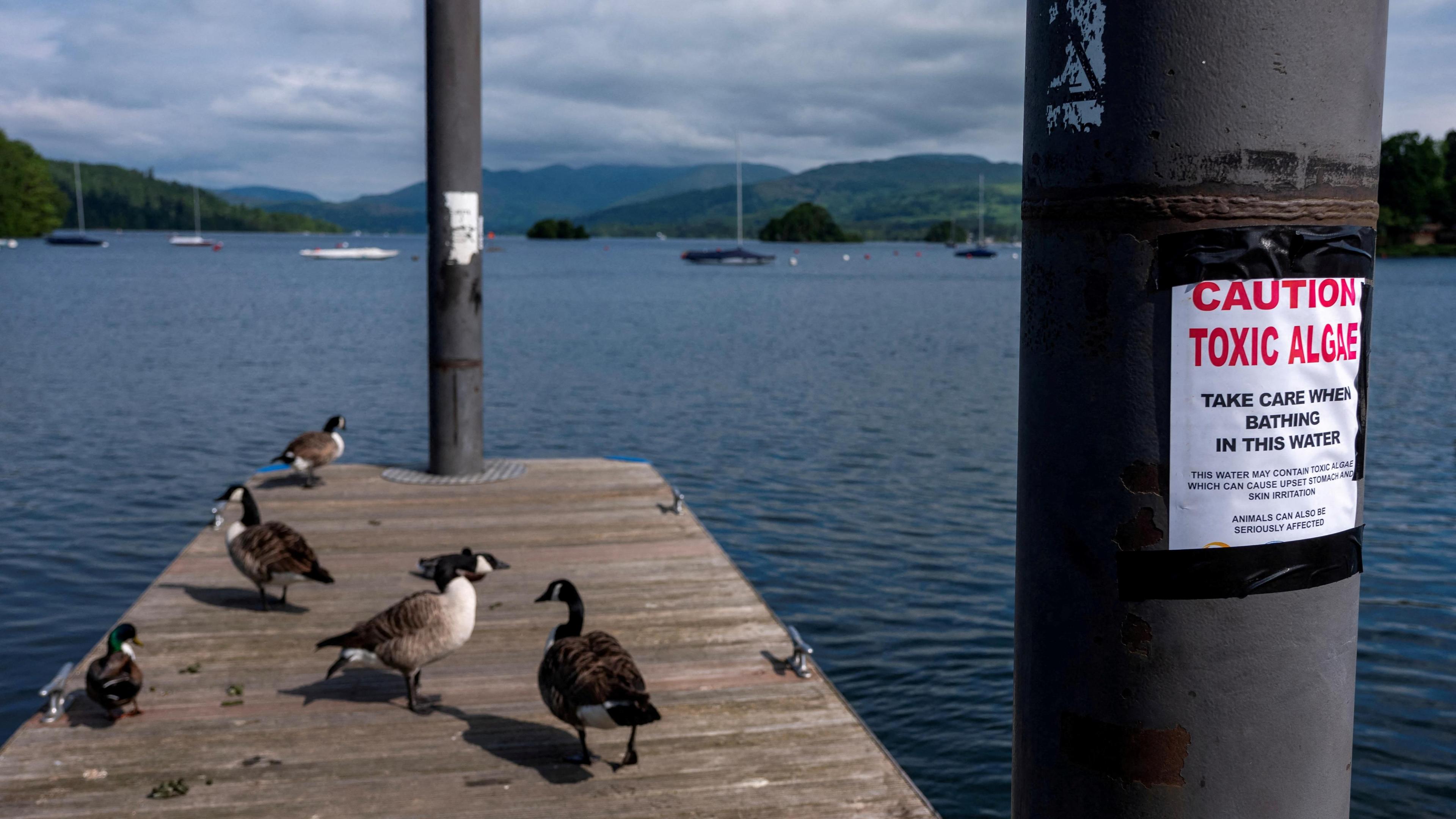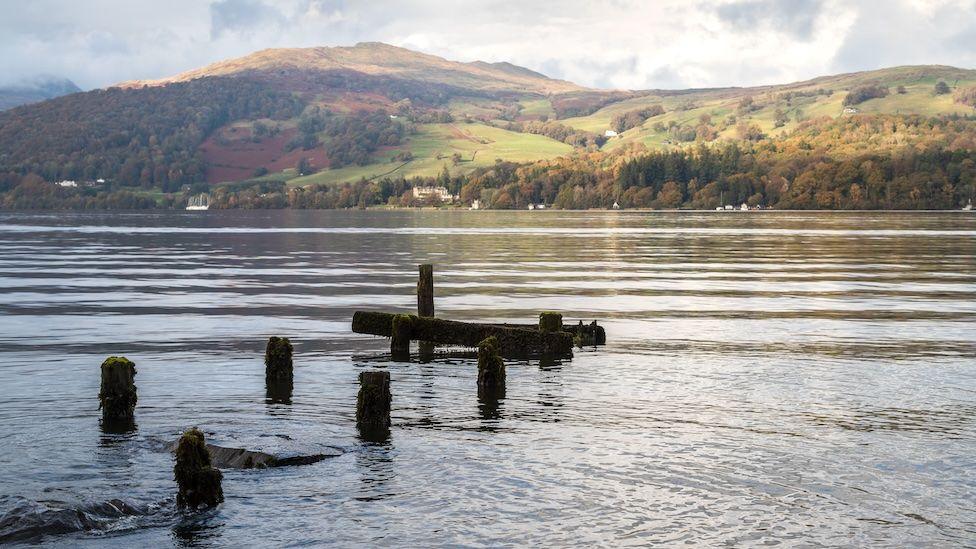Trees planted in effort to improve water quality

Native tree species including wild cherry, downy birch, grey willow and sessile oak were planted
- Published
A water company has planted 6,000 trees near a Lake District reservoir in an effort to improve raw water quality.
Native tree species including wild cherry, downy birch, grey willow and sessile oak were planted over two months at Stybeck Farm near Thirlmere reservoir in Cumbria.
United Utilities pledged it would plant one million trees on its estates by 2030
The firm worked with West Cumbria Rivers Trust, who said the woodland would "help cool rivers for fish, protect water quality and strengthens resilience to floods and droughts".

West Cumbria Rivers Trust said the trees in Thirlmere would improve the quality of water that goes into the reservoir
West Cumbria Rivers Trust said the trees in Thirlmere would capture carbon and improve raw water quality around the reservoir.
The trees were planted on five and a half hectares of land which was covered in bracken.
The trust's project manager Caitlin Pearson said: "Projects like this are essential in addressing the challenges of climate change and biodiversity loss, and we're eager to see more opportunities to deliver this kind of meaningful work across the catchment."
27 January 2025: This article has been amended
Follow BBC Cumbria on X, external, Facebook, external, Nextdoor and Instagram, external. Send your story ideas to northeastandcumbria@bbc.co.uk.
Related topics
More stories from the BBC
- Published21 January

- Published15 May 2024
